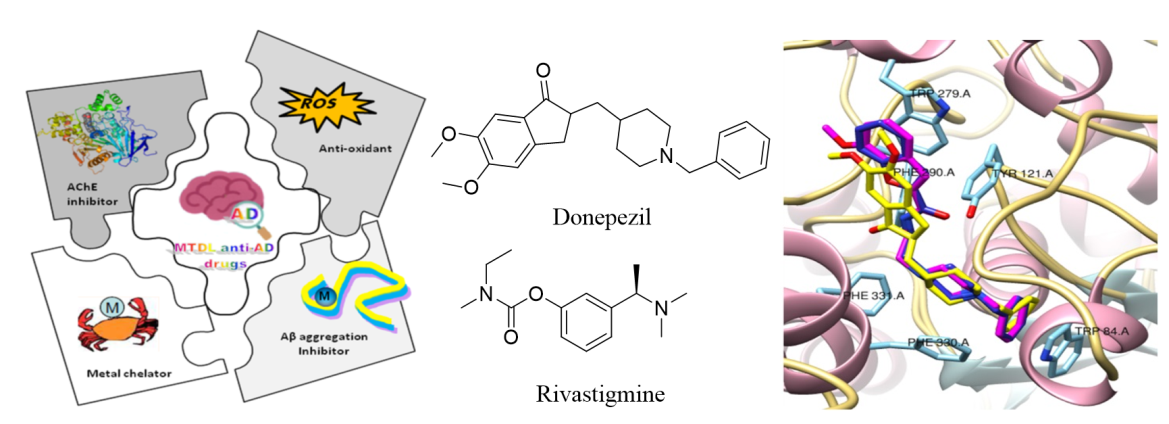
Doctoral Themes - Proposals
New multi-target hybrids as active agents in the therapy of Alzheimer´s disease (ANTI-AD)
Supervisors
Sílvia Chaves, silvia.chaves@tecnico.ulisboa.pt
Maria Amélia Santos, masantos@tecnico.ulisboa.pt
Registration Institution
Instituto Superior Técnico (Universidade de Lisboa)
Project description
Alzheimer's disease (AD) is a severe age-dependent progressive neurodegenerative disorder, being the most common cause of dementia. AD etiology is multifactorial, involving disturbances and imbalances in a variety of processes, ending up with inevitable neuronal death. Several disease targets, known to influence the generation and exacerbation of this disease, have been identified: acetylcholine deficit, β-site amyloid (Aβ) precursor protein cleaving enzyme 1 (BACE-1), Aβ plaque formation, oxidative stress and dyshomeostasis of essential endogenous biometals (e.g. copper, zinc and iron).
Among the US FDA already approved drugs for AD, four are cholinesterase inhibitors (tacrine, donepezil, rivastigmine, galantamine) and one (memantine) is an N-methyl-D-aspartate receptor antagonist. However, they only offer a temporary relieve of the symptoms, with some enhancement of levels of cholinergic or glutamatergic neurotransmission, but without reversion of the disease progress.
The complexity of AD pathology and its incomplete understanding are significant factors contributing to the difficulty in finding effective therapeutic agents. Therefore, the development of compounds with multi-target ability is an adequate form of combating AD with a unique molecular entity, thus expediting the hitting of several disease targets (with potential synergistic effects on the disease network). In this project, new multi-target hybrids (derived from donepezil and rivastigmine) will be designed (docking studies of the acetylcholinesterase (AChE)-inhibitor complex), synthesized and evaluated in terms of physico-chemical properties (antioxidant activity, metal chelation) and biological activity (inhibition of AChE, BACE-1 and Aβ aggregation, cell viability and neuroprotective effect).
Keywords
Alzheimer´s disease, multi-target drugs, metal chelators, Aβ aggregation, AChE inhibitors
Societal Challenges
According to estimates by the World Alzheimer's Association, 50 million people suffered from dementia approximately in 2019 and that will increase to 152 million by 2050. This project pretends to develop new disease-modifying agents, therefore contributing to the relief of the burden caused by this fatal rapidly growing disease.

Check other proposals from this and the other thematic lines:




